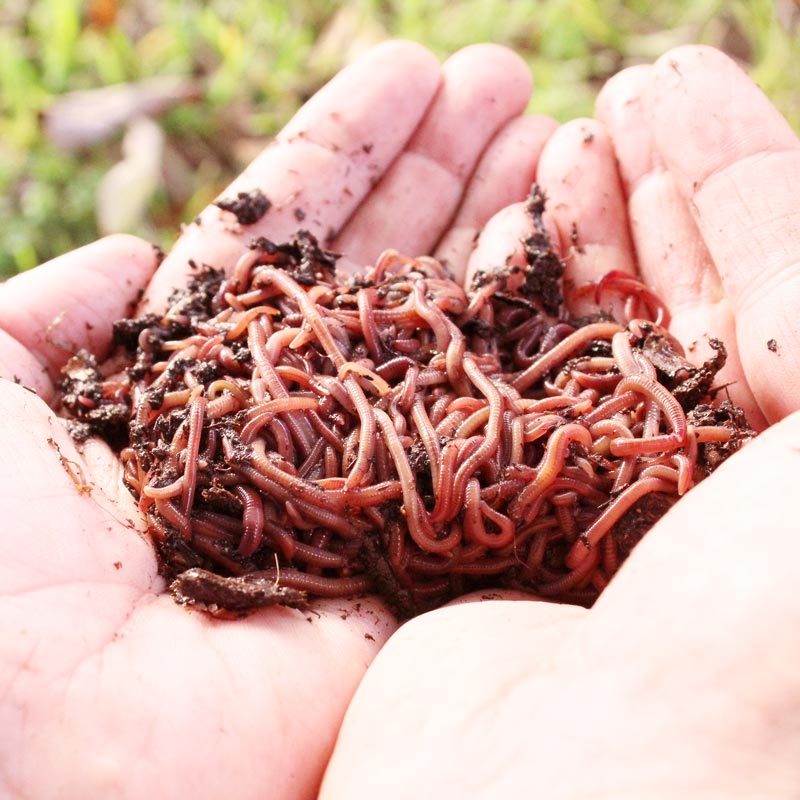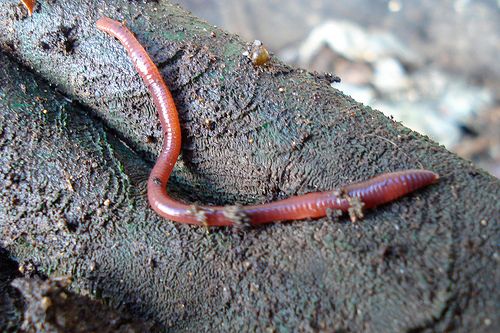The Incredible Globe of Red Wigglers: Increase Your Soil Fertility Today
The role of red wigglers, or Eisenia fetida, in boosting soil fertility is a topic of growing interest amongst gardeners and farming specialists. These little yet efficient microorganisms transform organic waste right into important worm spreadings, dramatically enhancing soil health and wellness and promoting lasting techniques. As we check out the advantages of vermicomposting and the functional actions to develop an efficient worm bin, the potential impact of these worms on your horticulture success ends up being increasingly noticeable. Comprehending the subtleties of their care and application might simply change the means you approach soil administration. What insights can be acquired from integrating these impressive creatures right into your gardening routine?
Understanding Red Wigglers
Red wigglers, clinically called Eisenia fetida, are a species of earthworm that play a vital role in enhancing dirt fertility. These worms prosper in organic-rich settings, such as compost piles and rotting plant product, where they take in natural waste and eliminate nutrient-dense spreadings. Their unique anatomy, featuring a fractional body and a clitellum, permits them to reproduce rapidly and effectively process big quantities of raw material.

The ecological significance of red wigglers prolongs past mere waste handling; they add to the soil food internet, fostering a diverse community of microbes that even more enhance dirt health. Recognizing the biology and actions of red wigglers is necessary for harnessing their complete capacity in lasting agriculture and gardening practices.
Advantages of Vermicomposting
The visibility of worm spreadings boosts dirt appearance, permitting for better water retention and drain. Red wigglers assist damage down organic matter, speeding up decomposition and reusing nutrients back right into the dirt.
Vermicomposting likewise promotes microbial activity, which is crucial for a healthy and balanced soil environment. Beneficial bacteria prosper in the existence of worm castings, aiding in the failure of natural products and improving nutrition accessibility to plants.
Finally, vermicomposting serves as a reliable waste monitoring remedy, lowering garbage dump waste by recycling kitchen scraps and other natural materials. This not only adds to ecological sustainability however likewise promotes a round economic climate within horticulture and agriculture.
How to Establish a Worm Bin
Establishing a worm container is an uncomplicated procedure that can considerably enhance your composting initiatives. Begin by choosing a suitable container, which can vary from a commercially available worm container to a basic plastic or wooden box (Red Wiggler Express). Make certain the container has appropriate air flow; little holes in the cover and sides will assist in air flow
Following, develop a bedding layer to give a comfy environment for the red wigglers. This can be made from shredded paper, cardboard, or coconut coir, dampened to a moist, sponge-like consistency. Fill up the bin to around one-third full with this bed linen material.
When the bedding is prepared, it's time to present the worms. Red wigglers thrive in natural waste, so place them carefully onto the bed linens. Cover the worms with a light layer of extra bedding to assist them adjust.
Feeding Your Red Wigglers
Giving the best food for your red wigglers is essential for their health and wellness and the effectiveness of your composting system. Red wigglers thrive on a different diet regimen, mainly being composed of organic materials such as vegetables and fruit scraps, coffee premises, and shredded paper. These products not only supply essential nutrients however additionally add to the microbial activity in the worm bin, which is vital for the worms' food digestion.
It is very important to stay clear of specific foods, such as milk items, oils, and meats, as these can attract bugs and develop undesirable smells. Additionally, citrus peels and excessively zesty foods need to be limited because of their prospective to damage the worms. A balanced technique to feeding entails checking the amount of food introduced to the container, making certain that it is consumed within an affordable time structure to avoid excess waste buildup.
To promote other optimum digestion, it is advantageous to slice or shred larger food products before adding them to the container. This technique increases the area for microbial action, facilitating quicker decomposition and enhancing the overall effectiveness of your composting system. Regularly observing the worms' feeding habits will help you adjust their diet regimen as essential.
Utilizing Worm Spreadings in Your Yard

To maximize the advantages, goal to apply roughly one component worm spreadings to three components dirt in your planting beds. Normal applications can result in boosted crop returns and healthier plants, making worm castings an indispensable resource for both newbie and skilled garden enthusiasts alike. By utilizing this all-natural amendment, you can cultivate a thriving yard while adding to lasting horticulture methods.
Verdict
In conclusion, red wigglers exemplify the essential function of vermicomposting in boosting soil fertility. Their ability to convert organic waste into nutrient-rich spreadings substantially enriches soil structure and supports microbial diversity.
Comments on “Lake Hickory Bait Provides the Solutions You Need for a Perfect Lawn”